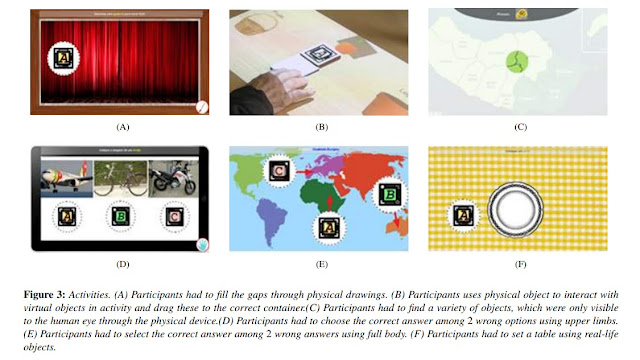Feasibility Study of an Augmented Reality System for People With Dementia
While augmented reality (AR) can be valuable in therapy with people with dementia (PwD), when designing an AR system for
PwD, it is important to understand how PwD interact with to such systems. Here we discuss an experiment that aims to study
how PwD can complete a set of activities using a variety of human - computer interaction techniques in an AR environment.
During our analysis, we will answer 4 research questions: (RQ1) How autonomous are PwD while using the proposed system? (RQ2) How engaging is the system? (RQ3) How proficient are PwD in doing the proposed activities using errorful and errorless approaches? (RQ4) How useful is the proposed system as perceived by therapists? There were 7 people diagnosed with dementia participating in the study. We also invited 3 health professionals to provide feedback regarding the overall usefulness of the AR system for stimulation purposes in PwD who are at initial to intermediate stages of dementia.The experiment showed that, in general, participants did enjoy doing the activities and were able to complete them independently. As far for the therapists, they showed interest in using the system for stimulation purposes in the future interventions. However, the experiment also revealed that it is important to adapt the activities to the patient’s profile.
Reference:
Ferreira, L., Cavaco, S., & Bermúdez i Badia, S. (2018). Feasibility Study of an Augmented Reality System for People With Dementia. Presented at the International Conference on Artificial Reality and Telexistence & Eurographics Symposioum on Virtual Environments, Cyprus. CITE DOWNLOAD



Comments
Virtual Reality Shopping
VR real estate
VR architecture